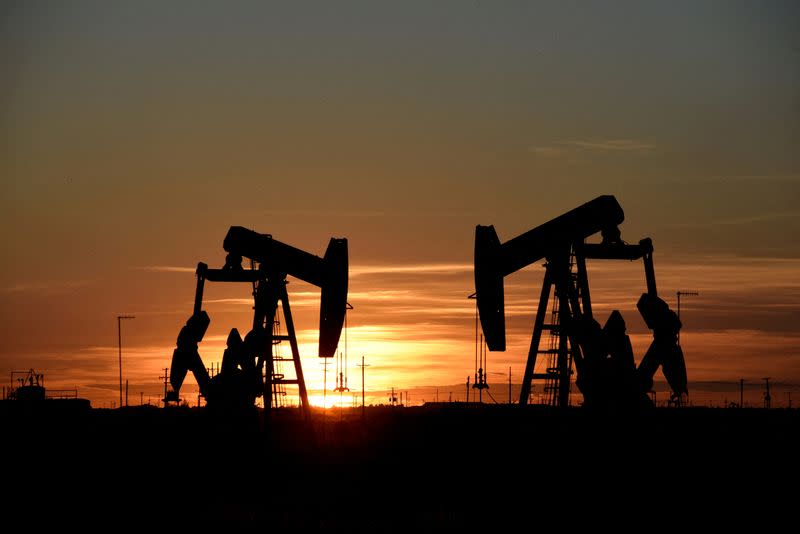Oil prices ease on weaker Chinese demand picture

By Scott DiSavino
NEW YORK (Reuters) -Oil futures eased in choppy trading on Tuesday on forecasts for slower oil demand growth in China, the world's second-biggest oil consumer, and disappointment with the size of cuts in China's key lending rates.
Adding to the bearish market sentiment, traders noted crude supplies from Iran and Russia have increased in recent weeks.
The price drop, however, was limited by expectations that oil demand will grow in China and India in the second half of the year.
Brent futures for August delivery fell 19 cents, or 0.3%, to settle at $75.90 a barrel. U.S. West Texas Intermediate (WTI) crude for July delivery fell $1.28, or 1.8%, to settle at $70.50 on its last day as the U.S. front-month.
The more active WTI contract for August delivery, which will soon be the U.S. front-month, was down about 1.0% at $71.93 a barrel.
The crude price decline was led by near 3% losses in U.S. gasoline and diesel futures.
"Oil locked in on anything and everything that has to do with China. This week, energy traders are seeing oil weakness emerge on disappointing stimulus efforts," said Edward Moya, senior market analyst at data and analytics firm OANDA.
China cut its benchmark loan prime rates (LPR) for the first time in 10 months, with a smaller-than-expected 10-basis-point reduction in the five-year LPR.
The rate reduction followed recent economic data showing China's retail and factory sectors were struggling to sustain momentum from earlier this year.
"Oil traders may need to see a materialised strong economic rebound in China to improve their outlook on oil demand," said Tina Teng at CMC Markets in Auckland.
An expert at China National Petroleum's (CNPC) research arm said China's crude demand will grow less than previously expected as strong interest for electric vehicles weighs on gasoline use.
China's fuel oil imports dipped in May after hitting a decade high in April, while exports of low-sulphur marine fuels rose, General Administration of Customs data showed.
The Chinese government met last week to discuss measures to spur economic growth and several major banks cut their 2023 economic growth forecasts for China amid fears that its post-COVID recovery is faltering.
Despite forecasts for less growth in oil demand, consumption in both China and India are still expected to rise in coming months.
Analysts at Eurasia Group, a consultancy, said "Demand growth may get a boost in the second half if Beijing introduces new stimulus measures to bolster economic expansion."
"India’s booming aviation sector will also contribute to overall demand growth," analysts at Eurasia said.
India dominated the Paris Airshow as Air India finalised a huge order for 470 planes from Airbus SE and Boeing Co.
On the supply side, Iran's crude exports and oil output have hit new highs this year despite U.S. sanctions.
Russia is also set to increase seaborne diesel and gasoil exports this month, outweighing cuts by the Organization of the Petroleum Exporting Countries (OPEC) and allies including Russia itself.
(Reporting by Scott DiSavino in New York; Additional reporting by Noah Browning in London, Katya Golubkova in Tokyo and Andrew Hayley in Beijing; Editing by David Goodman, Matthew Lewis, Jonathan Oatis and Nick Zieminski)

 Yahoo Finance
Yahoo Finance 